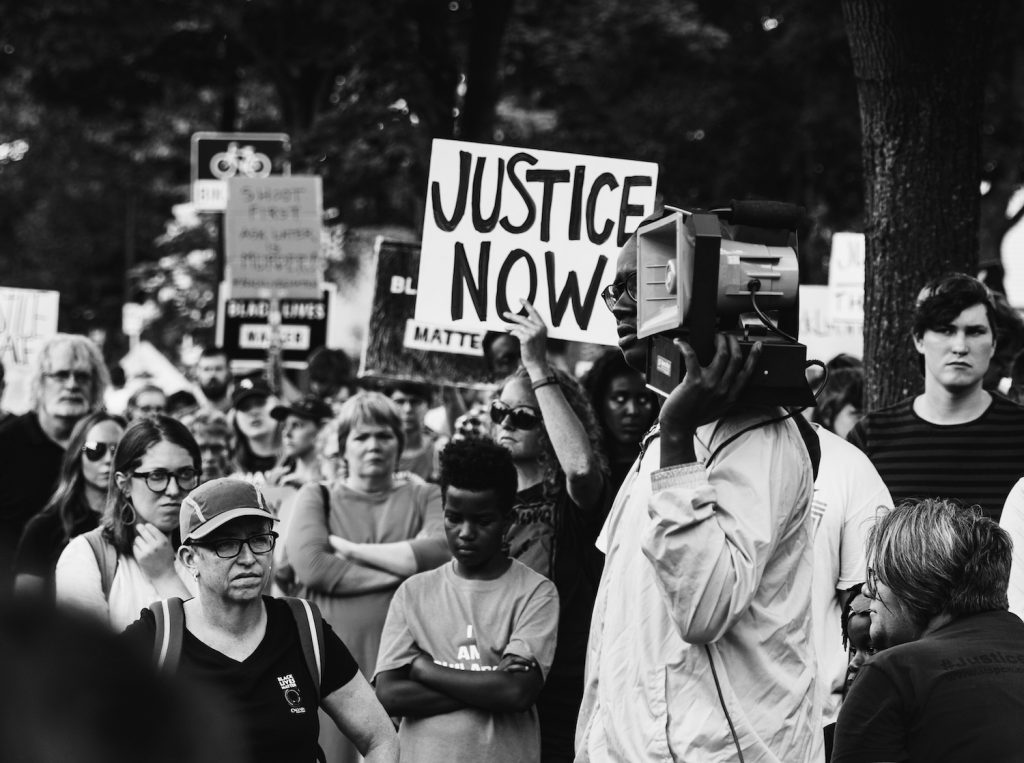By Katrice Williams, Senior Criminal Justice Fellow
At the Cleveland Foundation, we believe that one of the best ways to help people interacting with the criminal legal system is to prevent them from ever landing there in the first place. Last year in Ohio, nearly 43,000 people were incarcerated in state prisons, at a cost of $1.9 billon annually, or $99.96 per person per day. And, in Cuyahoga County, where on average 1,600 people are incarcerated daily in the county jail, that cost exceeds nearly $99.3 million annually, or $165 per person on any given day. Incarceration is expensive and unnecessary when there are means to get people the counseling and other services they need to avoid jail or prison.
For two years as the foundation’s senior criminal justice fellow, I’ve been leading the foundation’s efforts to study opportunities to impact systemic reform in Cuyahoga County’s criminal legal system. I see systems reform as an opportunity to shift and change the factors most often leading to mass incarceration that encourage more, rather than less, judicial involvement for people of color and other vulnerable populations, like youth or people suffering from severe mental illness.
Investing more in systems change, as opposed to only direct services and programming, is a unique shift. Direct services, such as job training and housing assistance can greatly aid individuals who are interacting with the justice system by helping them to attain new employment and a place to live. However, direct services alone have not stopped the expansion of the prison system.
Instead of thinking of public safety as only a protective factor to keep people and property safe, we believe it should include a more expansive view of investment in the community’s built environment, access to housing, employment, and mental health services, and economic and educational opportunity. The Cleveland Foundation’s new initiative around criminal legal grantmaking takes this broader view – community safety is about meeting people’s basic needs. Hence, we are focused on four policy priorities:
- Reduce adult pre-trial detention by supporting strategies that promote racial and income equity, diversion, and community-based alternatives to incarceration.
- Reduce juvenile incarceration by encouraging justice stakeholders to use community-based alternatives to incarceration for youth targeted for detention and decrease the total number of youths currently housed in the Cuyahoga County Detention Center.
- Improve systems alignment and connectivity between pretrial services and mental health and behavioral health response systems.
- Improve and expand reentry services and community integration for returning individuals through policy, advocacy, and legislative efforts.
Part of our investment includes supporting community-based and grassroots organizations using systems change approaches, as well as policy and advocacy tactics. Systems change is defined as shifting the dominant institutions precipitating mass incarceration and encouraging less judicial involvement for people of color. And systems-change approaches create alternative narratives, structures, systems and solutions that respond differently from the status quo of incarceration. Building alternative structures and narratives could include structural, relational, or transformative changes. Structural change speaks to changing policies, practices, and resource flows. While relational changes focus on shifting power dynamics, relationships, and connections between different systems actors to maximize how resources are redistributed from carceral systems to community needs. Transformative change is important too for changing the mental models that led us to believe that a bigger carceral system is the only way to achieve public safety.
Community-based groups that use these systems change, policy and advocacy approaches are encouraged to submit an application to the Cleveland Foundation Criminal Legal Reform Request for Proposals (RFP) between March 29 and May 5, 2023. More information about eligibility and available grants can be found here.
If your organization is a federally registered 501(c)(3) nonprofit, has an annual budget of $1.5 million or less, and uses systems change approaches to reform the criminal legal system, sign up for the March 24 information session here. You can also register for one of the technical assistance workshops on April 5 or April 12, or one of three grant writing assistance workshops that will be offered on April 6, 13, and 20. If your organization is not registered as a 501(c)(3) organization, you can still apply through a fiscal sponsor.
To attend one of the technical or grant writing assistance workshops, please register below:
Technical Assistance Workshops:
Grant Writing Assistance Workshops:
- Registration Link for April 6, 2023
- Registration Link for April 13, 2023
- Registration Link for April 20, 2023
Workshop Resources
If you missed a workshop or just want to review the materials again, you can access the grant writing assistance presentation here.
Watch a Technical Assistance Workshop here:
Watch a Grant Writing Assistance Workshop here:
If you have questions, please see our applicant guide here.
As we announce our first RFP around criminal legal reform, we remember the words of the late Howard Zinn: “I am convinced that imprisonment is a way of pretending to solve the problem of crime… It is a cruel and useless substitute for the elimination of those conditions – poverty, unemployment, homelessness, desperation, racism, greed – which are at the root of most punished crime. It must surely be a tribute to the resilience of the human spirit that even a small number of those men and women in the hell of the prison system survive it and hold on to their humanity,” You Can’t Be Neutral on a Moving Train: A Personal History of Our Times (2002).



